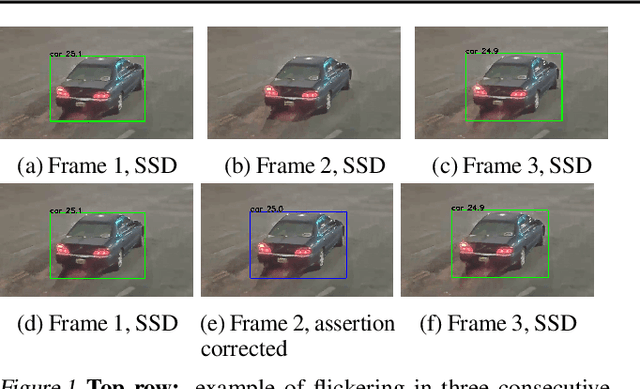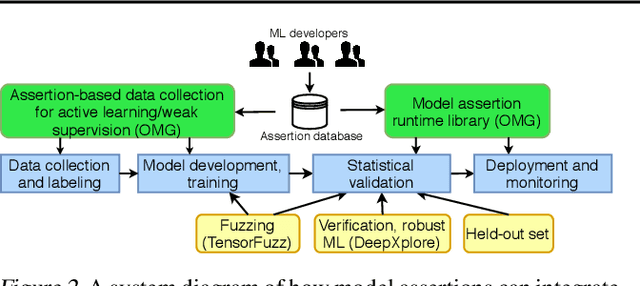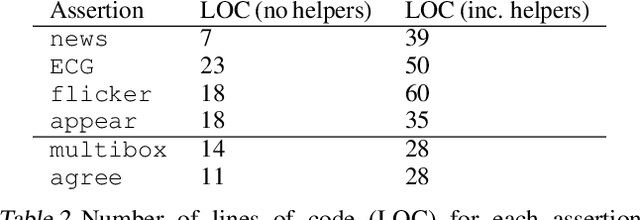Model Assertions for Monitoring and Improving ML Models
Paper and Code
Mar 11, 2020



ML models are increasingly deployed in settings with real world interactions such as vehicles, but unfortunately, these models can fail in systematic ways. To prevent errors, ML engineering teams monitor and continuously improve these models. We propose a new abstraction, model assertions, that adapts the classical use of program assertions as a way to monitor and improve ML models. Model assertions are arbitrary functions over a model's input and output that indicate when errors may be occurring, e.g., a function that triggers if an object rapidly changes its class in a video. We propose methods of using model assertions at all stages of ML system deployment, including runtime monitoring, validating labels, and continuously improving ML models. For runtime monitoring, we show that model assertions can find high confidence errors, where a model returns the wrong output with high confidence, which uncertainty-based monitoring techniques would not detect. For training, we propose two methods of using model assertions. First, we propose a bandit-based active learning algorithm that can sample from data flagged by assertions and show that it can reduce labeling costs by up to 40% over traditional uncertainty-based methods. Second, we propose an API for generating "consistency assertions" (e.g., the class change example) and weak labels for inputs where the consistency assertions fail, and show that these weak labels can improve relative model quality by up to 46%. We evaluate model assertions on four real-world tasks with video, LIDAR, and ECG data.
 Add to Chrome
Add to Chrome Add to Firefox
Add to Firefox Add to Edge
Add to Edge